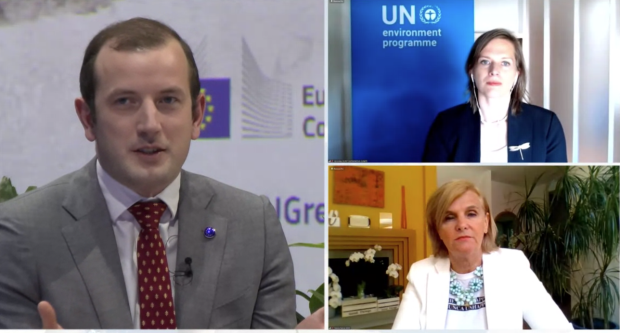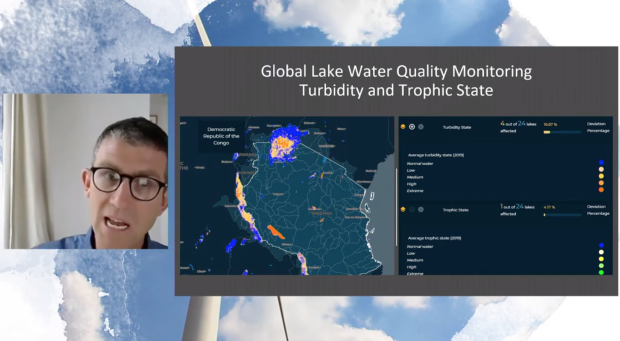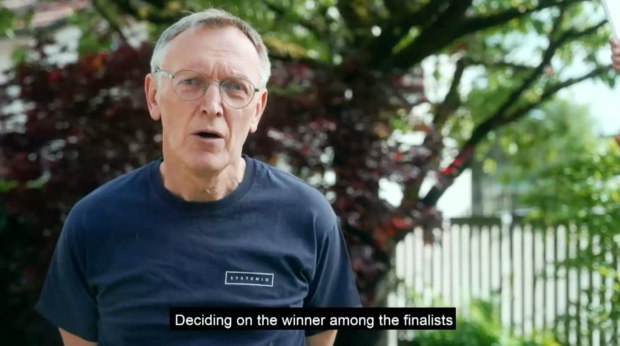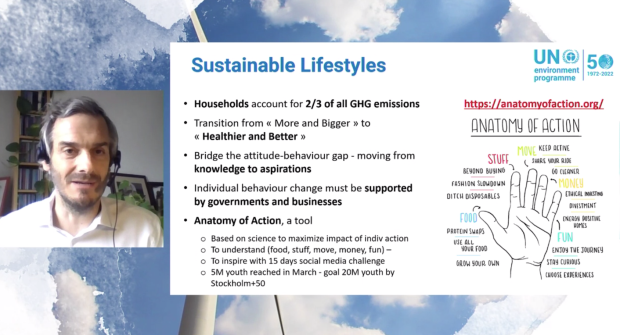UNEP at EU Green Week 2021 – a Brief Recap
Discussion details
EU Green Week 2021, Europe’s biggest annual conference focusing on environmental policy, took place from 31 May to 4 of June. This edition was dedicated to the topic of “zero pollution ambition”: EU Action Plan towards a Zero Pollution Ambition and links to other initiatives under the European Green Deal.
As in previous editions, UNEP had the pleasure of participating in multiple sessions of the virtual conference organized by the European Commission from 1 to 4 June, providing expert insights into the ways science can be coupled with policy-making in order to deliver effective solutions contributing to sustainability and elimination of pollution.
This article provides a brief overview of UNEP’s interventions during the EU Green Week.
The high-level opening of the EU Green week conference on 1 June entitled “For healthier people and planet – can you imagine a world without pollution?” set out the current challenges and future opportunities of a zero pollution world. European Commissioner for the Environment, Mr Virginijus Sinkevičius highlighted the fact that reducing pollution went hand in hand with achieving climate neutrality and biodiversity objectives and would help to transform the EU into a clean and circular economy. Following the opening statements of President Von der Leyen and Commissioner Sinkevičius, UNEP Head of Brussels office, Veronika Hunt Šafránková discussed the EU’s Zero Pollution Action Plan from a global perspective. She underlined that the Zero Action Plan was a major regional contribution to a healthy planet for all, with a focus to moving towards zero pollution for air, water and soil, and was very closely aligned with the global call y the United Nations Environment Assembly to transition towards a Pollution-Free Planet. Additionally, Ms Šafránková welcomed the EU’s call for a better integrated overview of pollution to enable public and private actors to tackle connected pollution issues across space and time.

During the second day of EU Green Week UNEP’s Monika MacDevette, Chief of the Chemicals and Health Branch, Economy Division took part in Session 2.3 Special Programme: Catalysing progress towards zero pollution ambition by supporting the sound management of chemicals and waste. The session was co-hosted by the Directorate-General for International Partnerships and UNEP to explore the role of the Special Programme in supporting the sound management of chemicals and waste through its ongoing projects and its contribution to achieving the zero pollution ambition.
In her remarks, Ms. MacDevette congratulated the EU on the launch of its zero pollution action plan and noted that the EU was a supporter of and the biggest contributor to the Special Programme. She stressed that sound management of chemicals and waste should be a priority, not only within the EU, but across the world and highlighted the achievements of several successful projects carried out under the Special Programme. Ms. MacDevette also discussed the implications for human rights of the environmentally sound management and disposal of hazardous substances and wastes

“Rebuilding greener! Maximising the environmental co-benefits in times of recovery” was another session taking place during the second day of EU Green week. The objective of the discussion was to reflect on recent developments in environmental mainstreaming through the lenses of the recovery and resilience process, the use of “do no significant harm principle” across sectorial policies and creation of environmental co-benefits of strategic investments. UNEP’s Steven Stone, Chief, Resources and Markets Branch, Economy Division stated that the recovery form the COVID-19 pandemic is a heroic challenge, but also an opportunity to create conditions for prosperity for all, as at no point in history so many countries had been in recession at the same time. Thus, Steven Stone emphasized the importance of a green recovery, tying the economic and environmental axes in a strategic way and allowing further greening in areas of energy, infrastructure, and fiscal policies. He commended the EU for its investment in sustainable recovery and highlighted the need for the EU to support and create opportunities for green recovery outside of Europe as well. To showcase exemplary policy solutions and direct governments towards more impactful and sustainable investment, Steven Stone referred to the Global recovery observatory.

To discuss Copernicus, European Commission’s Earth Observation Programme, during the second day of the EU Green Week, UNEP’s Stuart Crane joined a session titled “Space is the place – monitoring the planet’s health”. The aim of the discussion was to provide the audience with an understanding of how Copernicus can assist in identifying sources of pollution at sea, on land, rivers, lakes, and in our atmosphere, so that successful steps can be taken in clean up our planet. “UNEP has teamed up with the Commission to monitor lake water quality around the entire world using Copernicus’ space data” said Stuart Crane. He also gave insights into the way space data could contribute to freshwater management and help decision-makers progress on SDG 6, target 6. For that purpose UNEP and the Commission have created a website with publicly available space data : https://www.sdg661.app/home . Using the data available on the website, each county around the globe could understand the water-pollution issues in its territory and address those by basing policy solutions on geospatial data, to restore freshwater ecosystems.

The LIFE awards ceremony also took place during the second day of EU Green Week. Dr Janez Potočnik, Co-Chair, United Nations Environmental Programme, International Resource Panel (UNEP IRP) and member of the jury of the LIFE awards, announced the winner for the LIFE Environment award: Reusing Posedonia . In his video message(31:35”) he explained the significant impact and importance of LIFE projects and thankedthis year’s participants for their efforts.

Finally, on 3 June, during the third day of EU Green week, Llorenç Milà i Canals, Head of the Life Cycle Unit at UNEP took part in Session 8.2 “Walking tall and treading light – creating sustainable lifestyles with the environmental footprint tool”. The discussion aimed at providing the audience with a better understanding of how to achieve a less polluting lifestyle integrating the data of the Consumption and Consumer Footprint Indicators. UNEP’s Llorenç Milà i Canals explained that life cycle impact assessment indicators contribute to enhancing the enabling conditions for calculating our own carbon footprint. However, he stressed that the results are only important if they are applied and contribute to informed decisions made by the consumers. Llorenç Milà i Canals explained the importance of policymakers for bridging the attitude-behavior gap and moving from aspiration to action using science as a driver of an informed consumer decision-making.

You can find all of the sessions during the EU Green Week here.
Lastly, besides the contributions to the discussions in sessions, UNEP manned a virtual stand where we welcomed over a hundred visitors throughout the 4 days conference and invited them to join the launch of the UN Decade on Ecosystem Restoration on 5 June.
Log in with your EU Login account to post or comment on the platform.